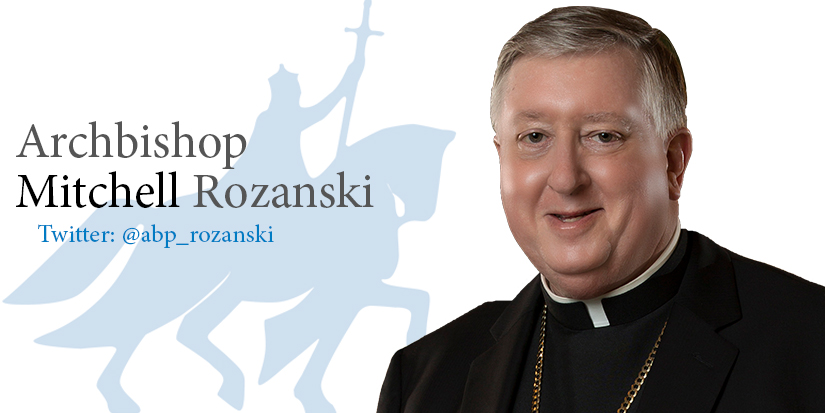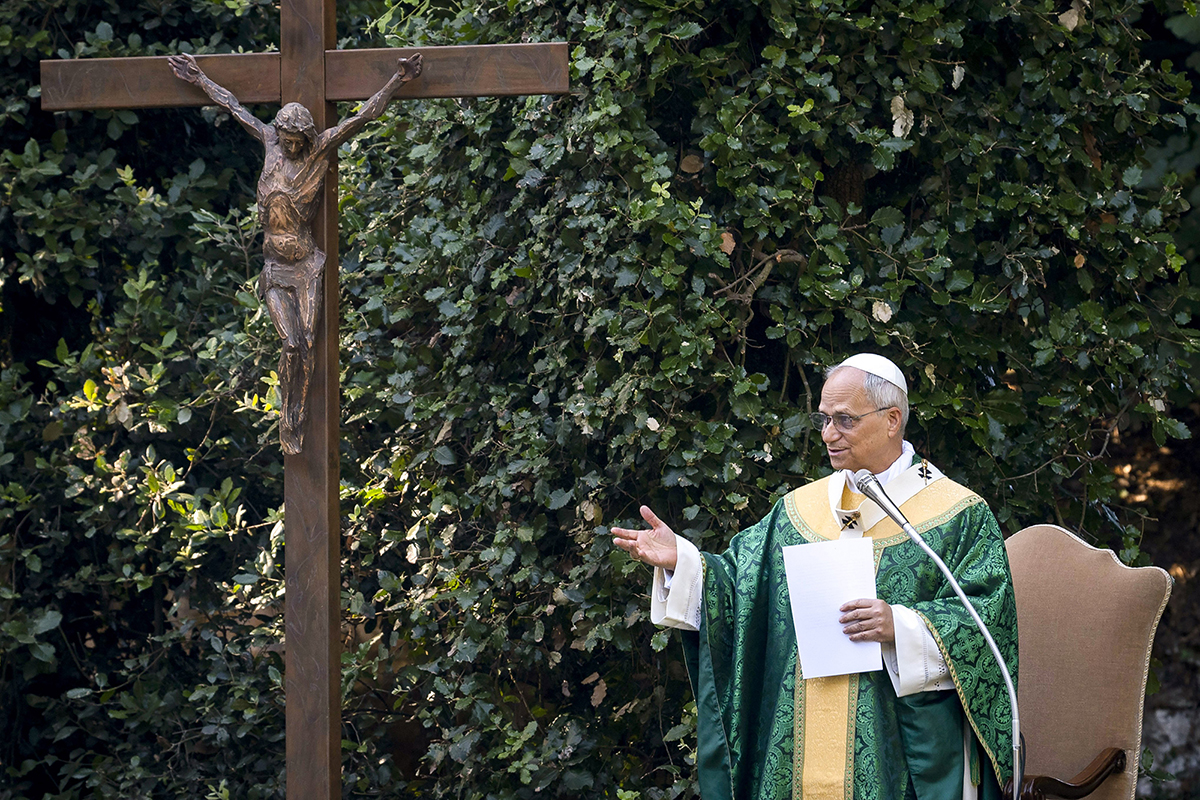SERVE THE LORD WITH GLADNESS | The Gospel helps heal our notion of love
Love means that we will the good of the other

Dear brothers and sisters in Christ,
This week we hear what may be the most unusual healing episode in all the Gospels. We also celebrate Valentine’s Day. And I think the first might help us with the second.
The healing episode comes from Mark chapter 8, in which Jesus heals a blind man. What makes it unusual is that this is the only instance in the Gospels where the healing comes in stages. In the first stage, the man reports: “I see people, but they look like trees walking.” In the second stage, he sees with perfect clarity.
Mark tells us this episode, first, because it really happened! But he places it here in his Gospel because it sheds light on what’s happening with the apostles.
Immediately before this healing, the apostles completely misunderstand something Jesus is doing. Jesus asks them: “Do you have eyes, but not see?” The answer is: pretty much, yes. At this point, they’re blind to who Jesus is.
Immediately after the healing of the blind man, however, we hear the confession of Peter — that Jesus is the Christ. But, lest we think Peter sees with perfect clarity, he follows this up by rebuking Jesus for thinking that being the Christ will involve suffering. Peter and the apostles see the Messiah, but only partially: “I see the Messiah, but he looks like a military conqueror.” More healing is needed!
Peter’s confession and rebuke are immediately followed by the Transfiguration. Now Peter, James and John see Jesus with perfect clarity. They started out completely blind. The healing of their faith occurred in stages. And one of the beauties of Mark’s Gospel is that he’s constantly inviting us into the story: This is what happened to them, and the same thing can happen to you.
As we observe Valentine’s Day, I think similar healing is needed for our culture’s understanding of love.
We start off thinking that love means taking delight in another — which it does. And we start off thinking that love means taking another for my own — my Valentine — which it does.
But if we stop there, we can’t tell loving a person apart from using a person. After all, lust also involves taking delight in another, and taking them for my own! Our culture says: “I see lust, and it looks like love.” That confusion leads to heartbreak.
The issue with these notions of love is not that they’re untrue, but that they’re incomplete.
St. Thomas Aquinas helps us when he says that “to love” is to will the good of the other. When we take delight in another, that’s a start. When we take them for our own because we will their good, that prevents us from using them. That’s where love distinguishes itself from lust.
Pope Emeritus Benedict XVI helps us when he says that, while “justice” means giving another what is theirs, “love” means giving another what is mine. Adding that notion of self-gift is crucial. Again, when we take delight in another, that’s a start. When we take them for our own because we want to make a gift of ourselves to them, that prevents us from using them. Once again, that’s where love distinguishes itself from lust.
Jesus takes delight in us. But He makes us as His own because He wills our good and wants to make a gift of Himself to us. That’s true love. And that’s what our culture needs if it’s going to see love clearly.
As the country celebrates Valentine’s Day — and we celebrate it too! — let’s pray and work for the full healing of our culture’s notion of love.





